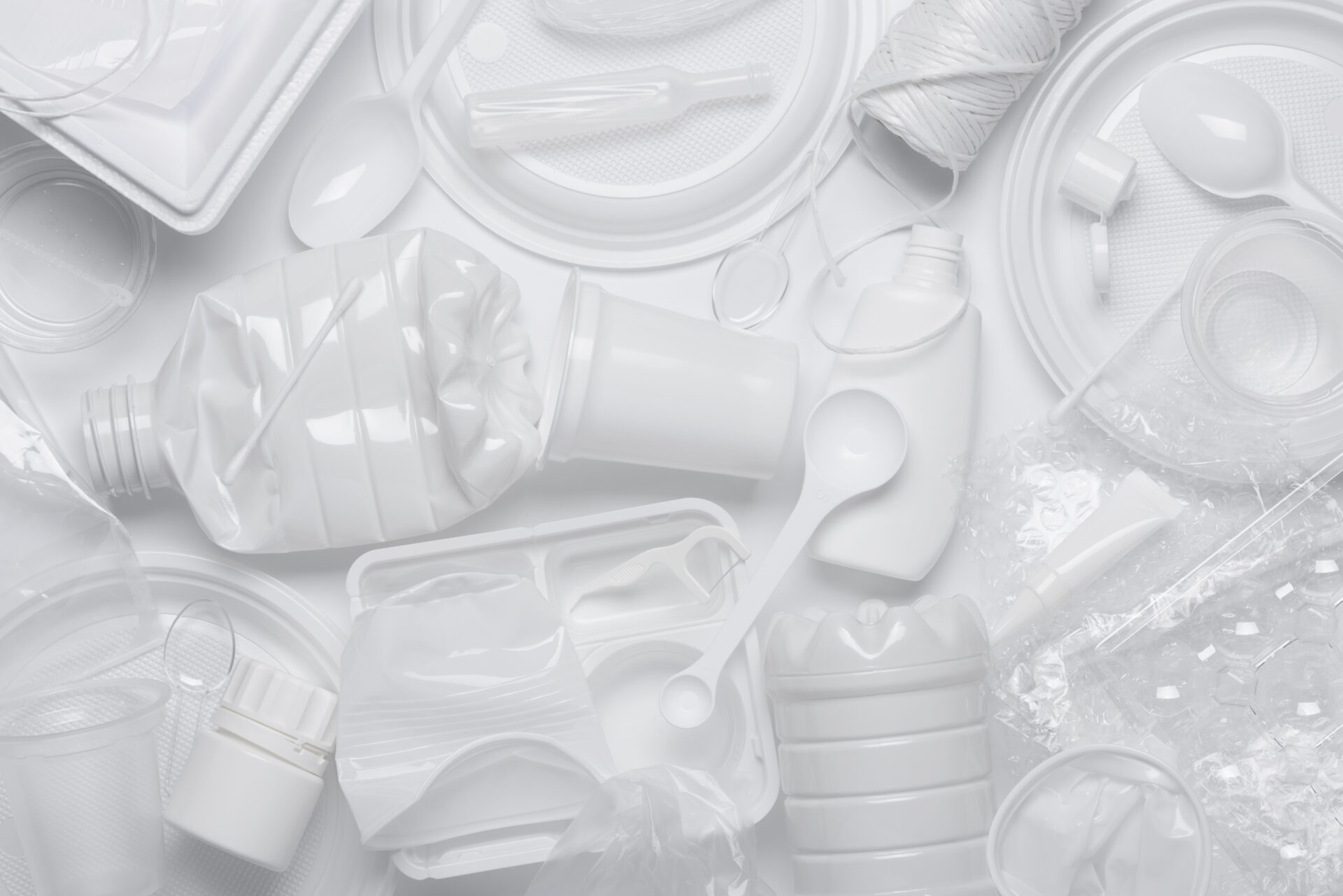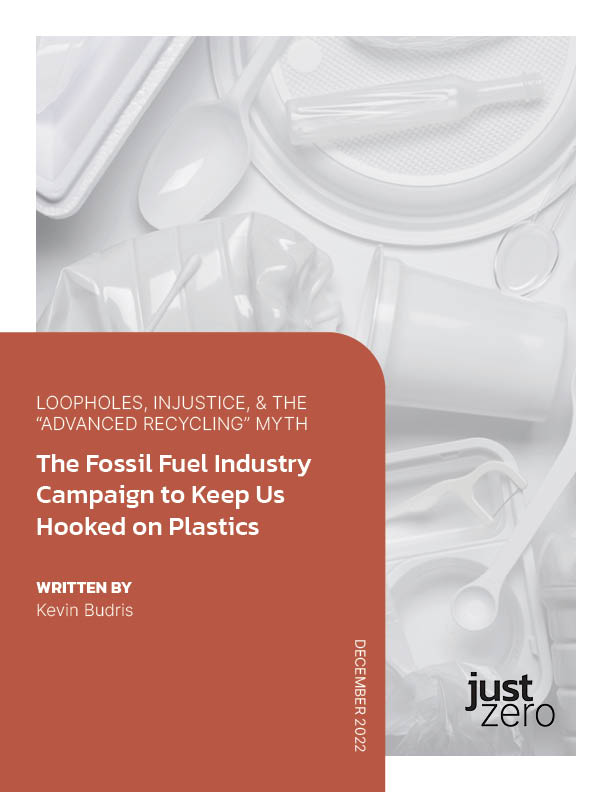
Executive Summary

Plastic. It’s everywhere. In our homes, our cars, our schools, and our offices. It’s wrapped around our food. It’s wrapped around our bodies – up to 60% of our clothes are made from plastic. It’s in our bodies – most of us eat up to a credit card’s worth of plastic every week. In fact, a recent study detected microplastics in the blood of almost 80% of test subjects. And it’s choking our oceans and damaging our climate.
So, what do we do about it? The answer seems almost obvious: Stop. Making. So. Much. Plastic.
“Not necessary,” say the billion-dollar corporations – and the lobbyists – that profit off the production of all these plastics. They claim to have a “better” solution: “advanced recycling” – sometimes called “chemical recycling,” or even “molecular recycling.”[1] These companies and their lobbyists insist that advanced recycling can miraculously solve our plastic woes. That it can create a “circular economy” for plastics where all plastic is reused and recycled, and where no plastic ends up in landfills, incinerators, or the environment.
If that sounds preposterous, it’s because it is preposterous. And if that sounds awfully convenient for plastic makers, it’s because it is awfully convenient for plastic makers.
Advanced recycling is not the solution fossil fuel and plastic lobbyists make it out to be. This expensive, unreliable, and toxic myth doesn’t recycle meaningful amounts of plastic. But industry lobbyists don’t care about that. What they care about is tricking lawmakers and the public into believing that this silver bullet will solve our plastic problems. These lobbyists – primarily the American Chemistry Council – pressure state legislators across the country to create loopholes for advanced recycling. Worse still, these facilities, and the lobbying campaign to make them easier to build, perpetuate environmental injustice.
Here’s the truth about advanced recycling:
- Advanced recycling is a public relations campaign for plastic. As others have explained, advanced recycling does not recycle much, if any plastic. It is simply the fossil fuel industry’s marketing plan to keep us hooked on the polluting cycle of making and burning single-use plastics. Why? Because even though it’s toxic for us, it’s profitable for them.
- The fossil fuel industry pushes for loopholes in state laws to make advanced recycling cheaper, easier, and less transparent. These loopholes exempt advanced recycling facilities from rules and regulations that protect and empower communities through public permitting processes, siting restrictions, public input, and oversight requirements.
- The fossil fuel industry also wants loopholes in state recycling laws that incentivize and financially support the advanced recycling industry. Producer responsibility programs and postconsumer recycled content mandates are meant to reduce waste and boost reuse and recycling systems. But the fossil fuel industry wants to use these laws to instead bolster plastic burning technologies and keep us hooked on single-use plastics.
- Advanced recycling perpetuates injustice and environmental racism. 76% of advanced recycling facilities in the U.S. are located in communities of color and low-income communities. The fossil fuel industry makes this problem even worse by pushing loopholes that disempower communities.
- We can stop advanced recycling in its tracks. All is not lost. States have a variety of tools at their disposal to push back against this toxic, climate-damaging, and unjust lobbying campaign.
Read the full report. Download now:
[1] “Advanced recycling,” “chemical recycling,” and “molecular recycling” are often used interchangeably. This report refers to all three – and other technologies that use heat and/or solvents to break down plastic waste – collectively as “advanced recycling.”